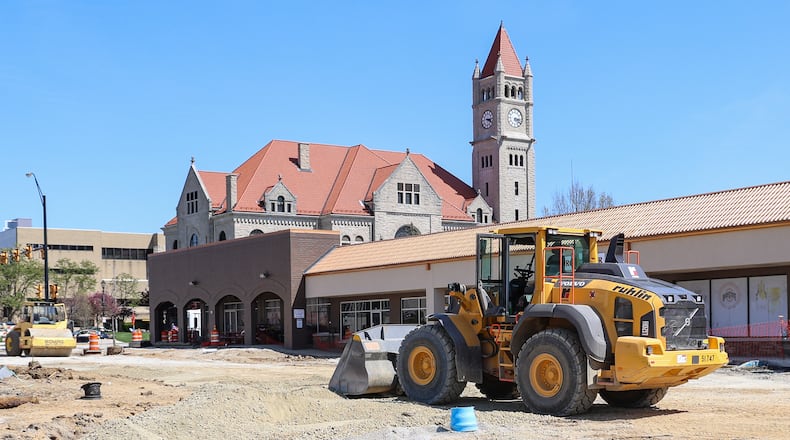“It would not be inappropriate to say the condition of our streets has been the number one priority of our residents for at least the last five years,” city documents say.
City and grant funding have mostly targeted main thoroughfares in the last 15 years, city documents say, leaving “streets in residential neighborhoods with unmet repair needs,” city documents show.
Xenia has around $40 million worth of road and street repair projects, Xenia Finance Director Ryan Duke said. The money from the income tax increase would generate approximately $2 million annually, and would need to be renewed after five years.
Several residents spoke at the Xenia City Council meeting Thursday regarding the condition of their own streets.
“For many, many years, numerous streets in Xenia have been and are destroyed by horrible potholes,” said resident Julia Reed. “These destructive and ugly streets not only damage cars, they also destroy the beauty of their neighborhoods.”
Former city councilman Tom Scrivens called upon city council to declare an emergency regarding the state of the city’s roads.
“We should do everything possible, let alone what we have been doing to try and move the process along,” he said.
“There is no argument,” City Manager Brent Merriman said. “A lot of the roads listed tonight, they’re awful, and it is an impediment to our community from a development standpoint.”
Part of the problem is Xenia’s aging stormwater systems, which in places have not been updated in the last century, said city council president Will Urschel. A large chunk of what the city spends annually on roads and street repairs has gone into stormwater systems and concrete repairs, he said.
Aging stormwater infrastructure has become a common problem in several Greene County communities in the last decade.
Income tax distributes that burden differently than property taxes would, Duke said. In Ohio, residents generally first pay municipal income tax to the city in which they work, then to the city in which they live. Therefore, individuals who work in Xenia but may live elsewhere would also pay into the income tax, and subsequently the upkeep of the roads.
If the measure is approved by voters, collection and work on those problem roads would begin in 2026, officials said.
“A solution is needed, and the solution is an fusion of cash dedicated specifically to these purposes,” Merriman told council members Thursday. “From everything you’ve told us as staff, you’re dedicated to putting those monies to work as soon as next year if voters are willing to make that investment.”
About the Author

